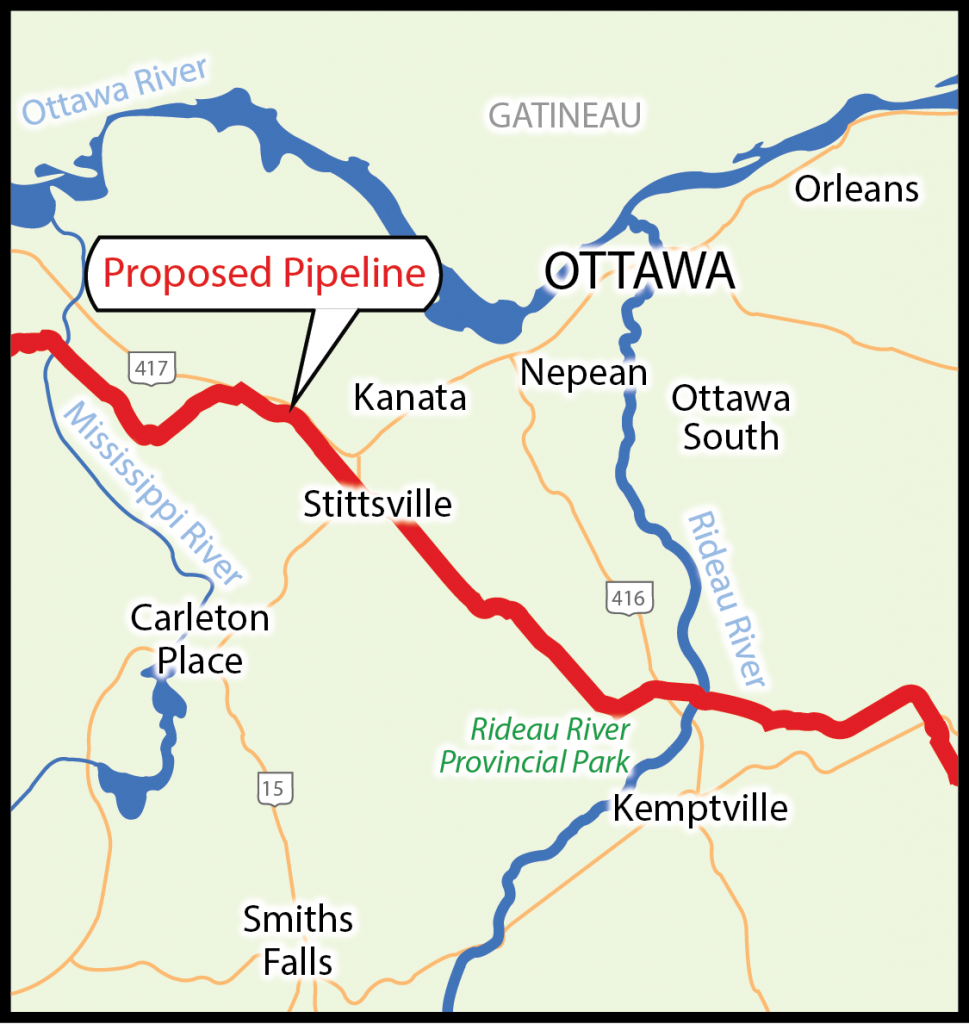Environmental groups celebrate pipeline cancellation
By Brendan Duffley
This year’s EcoFest environmental fair took place at Lansdowne Park on Oct. 12 in the afterglow of a major victory for Ottawa-based groups that had been fighting the proposed Energy East pipeline project.
Among those celebrating the cancellation of the project were members of Ecology Ottawa, which is also marking its 10th anniversary this year.
The controversial $15-billion pipeline project had been proposed by TransCanada in August 2013, and would have stretched 4,600 kilometres from Alberta and Saskatchewan to refineries in Eastern Canada and a port in New Brunswick. The completed pipeline would have been capable of transporting 1.1 million barrels of crude oil per day.
However, on Oct. 5, TransCanada announced that it would not be proceeding with the project. Although the declining price of oil has been cited as a key factor in the cancellation, Ecology Ottawa and its partners said they are confident that their actions opposing the project helped sway public opinion against the pipeline in the nation’s capital, adding to the strikes against TransCanada’s proposal.
Anthony Garoufalis-Auger, an organizer at Ecology Ottawa, claimed the organization’s success at the grassroots level was a major contributor to rousing public support against the pipeline.
“This was a collective effort,” he said. “We worked with many volunteers in the city of Ottawa, and it’s very much them that led this campaign.”
Andrea Harden, a campaigner for the Council of Canadians, agreed. Harden’s group has been advancing the cause of social justice for more than 30 years, and spent the past several years opposing the Energy East pipeline alongside Ecology Ottawa.
“This absolutely was a milestone,” Harden said of the cancellation. “It was a four-year campaign that a lot of volunteers here in Ottawa, via Ecology Ottawa, put a lot of time and effort into.”
From knocking on doors, to participating in Ontario Energy Board hearings and amassing names for petitions, Harden described a variety of tactics her organization and its affiliates used to spread word of the pipeline’s risks. Even before the cancellation was announced, Harden considered it an inevitability.
“Between community opposition, the threat to the drinking water of five million people, legal battles and the issue of Indigenous rights, it was absolutely going in that direction.”
The planned pipeline would have crossed several major Ottawa River tributaries upstream of the national capital as well as downstream, raising concerns that the drinking water of Ottawa and other communities along the river – including Montreal at the confluence of the Ottawa and St. Lawrence rivers – could have been contaminated in the event of a pipeline break.
Patrick Nadeau, executive director of Ottawa Riverkeeper, an advocacy group that works to ensure a drinkable, swimmable Ottawa River, said he was pleased with the outcome of the Energy East pipeline battle.
“All along we’ve been concerned with several aspects of the project, mainly that it was going to cross the Ottawa River, and that we had practically no technical information as to how exactly that was going to happen safely.”
The fact a pipeline leak could have polluted the Ottawa River watershed meant its cancellation gave Nadeau and his colleagues at EcoFest much to celebrate.
“I don’t think you’ll hear too many environmental groups crying over that one.”

